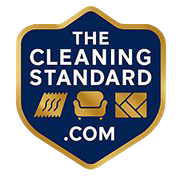Mikey P
Administrator
- Joined
- Oct 6, 2006
- Messages
- 117,120
Any relevance to your business?
Sounds like a trash can/bathroom wiping down union.So what is it?
Issa janitorial association.So what is it?
There may be some show specials on larger equipment, and many booths have freebies. Depends on how much business you do, or could do, with a vendor to get invited to the suite parties.Those of you who have been there, do vendors offer great deals on things? Do I want to road trip it and possibly come away with a new floor scrubber in my truck or just fly in?
